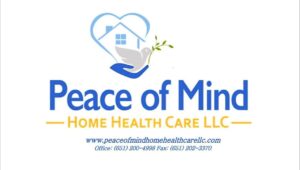Home health care has become an increasingly popular option for individuals seeking specialized medical care in the comfort and familiarity of their own homes. Accurate home health care has emerged as a key player in this field, offering comprehensive and personalized care to patients of all ages and conditions. With advancements in technology and a focus on patient-centered care, accurate home health care is revolutionizing the way healthcare is delivered. In this article, we will explore the benefits and challenges of accurate home health care, discuss its impact on patient outcomes, and provide insights on how to choose the right provider for your needs.
The Rise of Accurate Home Health Care
Accurate home health care has gained traction in recent years due to several factors. One of the primary reasons is the growing aging population, with many seniors preferring to age in place and receive care in the comfort of their own homes rather than moving to a nursing home or assisted living facility. Additionally, advances in medical technology have made it possible to provide complex and specialized care outside of a hospital setting.
Accurate home health care provides a wide range of services, including skilled nursing care, physical therapy, occupational therapy, speech therapy, medical social services, and home health aide services. These services are tailored to meet the unique needs of each patient, ensuring that they receive the appropriate level of care and support.
The Benefits of Accurate Home Health Care
Accurate home health care offers numerous benefits for patients and their families. Let’s explore some of the key advantages:
- Comfort and Convenience: One of the most significant benefits of accurate home health care is the ability to receive care in the familiar surroundings of one’s own home. This can alleviate stress and anxiety often associated with medical settings and promote a sense of comfort and well-being.
- Personalized Care: Accurate home health care providers develop personalized care plans for each patient, taking into account their unique needs, preferences, and goals. This individualized approach ensures that patients receive the specific care and attention they require.
- Improved Outcomes: Research has shown that patients who receive accurate home health care often experience better outcomes compared to those in traditional care settings. This may be due to the personalized nature of the care, reduced risk of hospital-acquired infections, and increased patient engagement.
- Cost Savings: Home health care is often more cost-effective than hospital or long-term care facility stays. By receiving care at home, patients can avoid expensive hospital bills and reduce the need for long-term institutional care.
- Reduced Readmissions: Accurate home health care plays a crucial role in preventing hospital readmissions. By closely monitoring patients’ conditions and providing timely interventions, home health care providers can help prevent complications and ensure a smooth transition from hospital to home.
Challenges and Solutions in Accurate Home Health Care
While accurate home health care offers numerous benefits, it also presents unique challenges that need to be addressed. Here are some of the common challenges and potential solutions:
- Communication and Coordination: Effective communication and coordination between healthcare professionals, patients, and their families are crucial in accurate home health care. Technology can play a vital role in facilitating communication, such as video conferencing for virtual consultations and electronic health records for seamless information sharing.
- Ensuring Safety: Safety is a top priority in home health care. Accurate home health care providers must ensure that patients receive the necessary equipment, education, and support to maintain a safe environment. Regular assessments and evaluations can help identify potential risks and implement appropriate interventions.
- Training and Education: Accurate home health care providers need to have the necessary training and education to deliver high-quality care. Continuous professional development and access to resources are essential to keep up with the latest advancements in medical knowledge and technology.
- Managing Patient Expectations: Accurate home health care providers must effectively manage patient expectations and ensure that they understand the limitations and scope of home-based care. Open and honest communication, along with clear care plans, can help set realistic expectations and foster trust between patients and providers.
Accurate Home Health Care: Impact on Patient Outcomes
The impact of accurate home health care on patient outcomes has been well-documented. Numerous studies have shown that patients who receive home-based care experience improved functional status, reduced hospital readmissions, and higher patient satisfaction rates. For example, a study published in the Journal of the American Medical Association found that home health care reduced the risk of hospital readmissions and emergency department visits among Medicare beneficiaries.
Accurate home health care also has a positive impact on patients’ mental health and emotional well-being. Being able to receive care in a familiar and supportive environment can reduce stress, anxiety, and depression often associated with hospital stays. Additionally, home health care promotes independence and autonomy, allowing patients to maintain a sense of control over their lives.
Furthermore, accurate home health care has been shown to be a cost-effective alternative to traditional care settings. A study published in Health Affairs found that Medicare beneficiaries who received home health care had lower healthcare costs compared to those in nursing homes or long-term care facilities.
Choosing the Right Accurate Home Health Care Provider
Choosing the right accurate home health care provider is crucial to ensure that you receive high-quality and reliable care. Here are some factors to consider when selecting a provider:
- Accreditation and Certification: Ensure that the home health care provider is accredited and certified by the appropriate regulatory bodies. This ensures that they meet the necessary standards of care and adhere to best practices.
- Experience and Expertise: Look for providers with extensive experience in delivering accurate home health care. Additionally, check if they have specialized expertise in your specific condition or needs.
- Availability and Responsiveness: A reliable home health care provider should be available when you need them and responsive to your inquiries and concerns. Prompt communication and accessibility are essential for a positive care experience.
- Patient Reviews and Testimonials: Read patient reviews and testimonials to get an idea of the provider’s reputation and the quality of care they provide. This can give you valuable insights into the experiences of other patients.
- Coordination with Other Healthcare Professionals: Accurate home health care providers should have established relationships and effective communication channels with other healthcare professionals involved in your care. This ensures seamless coordination and continuity of care.
Conclusion
Accurate home health care offers a compelling alternative to traditional care settings, providing personalized and high-quality care in the comfort of one’s own home. The benefits of accurate home health care, such as improved patient outcomes, cost savings, and enhanced patient satisfaction, are well-documented. However, challenges, such as effective communication and coordination, ensuring safety, and managing patient expectations, need to be addressed to maximize the potential of home-based care.
When choosing an accurate home health care provider, consider factors such as accreditation, experience, availability, patient reviews, and coordination with other healthcare professionals. By carefully selecting the right provider, you can ensure that you receive the best possible care and support in your home environment.
FAQs
1. How does accurate home health care differ from traditional care settings?
Accurate home health care provides specialized medical care in the comfort of patients’ own homes, whereas traditional care settings, such as hospitals or long-term care facilities, require patients to receive care in a separate facility.
2. Can accurate home health care provide complex medical treatments?
Yes, accurate home health care providers can deliver complex medical treatments, including intravenous therapies, wound care, and medication management, among others. Advanced medical technology and trained professionals enable the provision of such treatments at home.
3. How can accurate home health care ensure patient safety?
Accurate home health care providers prioritize patient safety by conducting regular assessments, providing necessary equipment, educating patients and their families about potential risks, and implementing appropriate interventions to mitigate safety hazards.
4. Is accurate home health care covered by insurance?
Accurate home health care is often covered by insurance, including Medicare and private health insurance plans. However, coverage may vary depending on the specific services and conditions. It is advisable to check with your insurance provider to understand your coverage.
5. Can accurate home health care replace hospital care entirely?
Accurate home health care can replace hospital care for many conditions and treatments. However, there may be instances where hospitalization is necessary, such as for surgical procedures or acute medical emergencies. The suitability of home-based care depends on individual patient needs and the recommendation of healthcare professionals.
Summary
Accurate home health care is revolutionizing the healthcare industry by providing personalized and high-quality care in the comfort of patients’ own homes. It offers numerous benefits, including comfort and convenience, personalized care, improved outcomes, cost savings, and reduced readmissions. Challenges, such as communication and coordination, safety, training and education, and managing patient expectations, need to beaddressed to ensure the success of accurate home health care. Research has shown that accurate home health care has a positive impact on patient outcomes, including improved functional status, reduced hospital readmissions, and higher patient satisfaction rates. When choosing an accurate home health care provider, it is essential to consider factors such as accreditation, experience, availability, patient reviews, and coordination with other healthcare professionals. By selecting the right provider, patients can receive the best possible care and support in their home environment.
In conclusion, accurate home health care offers a compelling alternative to traditional care settings, providing personalized and high-quality care in the comfort of patients’ own homes. The benefits of accurate home health care, such as improved patient outcomes, cost savings, and enhanced patient satisfaction, are well-documented. However, challenges, such as effective communication and coordination, ensuring safety, and managing patient expectations, need to be addressed to maximize the potential of home-based care. By carefully selecting the right accurate home health care provider, patients can ensure that they receive the best possible care and support in their home environment.
FAQs
1. How does accurate home health care differ from traditional care settings?
Accurate home health care provides specialized medical care in the comfort of patients’ own homes, whereas traditional care settings, such as hospitals or long-term care facilities, require patients to receive care in a separate facility.
2. Can accurate home health care provide complex medical treatments?
Yes, accurate home health care providers can deliver complex medical treatments, including intravenous therapies, wound care, and medication management, among others. Advanced medical technology and trained professionals enable the provision of such treatments at home.
3. How can accurate home health care ensure patient safety?
Accurate home health care providers prioritize patient safety by conducting regular assessments, providing necessary equipment, educating patients and their families about potential risks, and implementing appropriate interventions to mitigate safety hazards.
4. Is accurate home health care covered by insurance?
Accurate home health care is often covered by insurance, including Medicare and private health insurance plans. However, coverage may vary depending on the specific services and conditions. It is advisable to check with your insurance provider to understand your coverage.
5. Can accurate home health care replace hospital care entirely?
Accurate home health care can replace hospital care for many conditions and treatments. However, there may be instances where hospitalization is necessary, such as for surgical procedures or acute medical emergencies. The suitability of home-based care depends on individual patient needs and the recommendation of healthcare professionals.
Summary
Accurate home health care is revolutionizing the healthcare industry by providing personalized and high-quality care in the comfort of patients’ own homes. It offers numerous benefits, including comfort and convenience, personalized care, improved outcomes, cost savings, and reduced readmissions. Challenges, such as communication and coordination, safety, training and education, and managing patient expectations, need to be addressed to ensure the success of accurate home health care. Research has shown that accurate home health care has a positive impact on patient outcomes, including improved functional status, reduced hospital readmissions, and higher patient satisfaction rates. When choosing an accurate home health care provider, it is essential to consider factors such as accreditation, experience, availability, patient reviews, and coordination with other healthcare professionals. By selecting the right provider, patients can receive the best possible care and support in their home environment.




